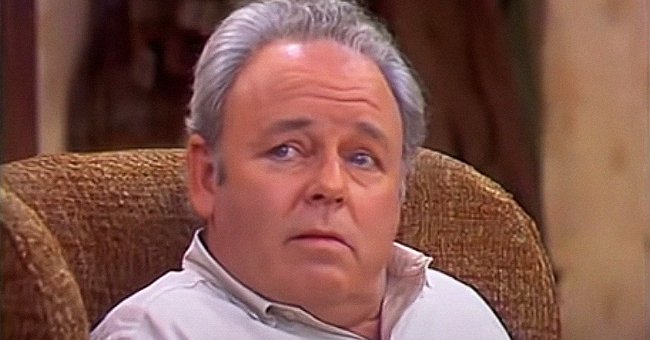
Carroll O’Connor’s Son Called Him to Tell Him He Was Going to End His Life - He Wasn’t Saved
Carroll O'Connor was one of the most famous comedy actors in the '70s and '80s, but behind the scenes, his life was filled with the grief of losing his only son to drug addiction.
For more than four decades, Carroll O'Connor's smile was a regular part of Hollywood. He was one of the most successful actors and producers of his time, widely known for his role as Archie Bunker in the CBS sitcom "All in the Family."
After many years of dull sitcoms, "All in the Family" was America's chance of seeing something funny, educational, and fun. It drew an average of 50 million viewers weekly as everyone rushed to get a glimpse of Bunker, who was loud-mouthed, reactionary, and misogynistic yet lovable.
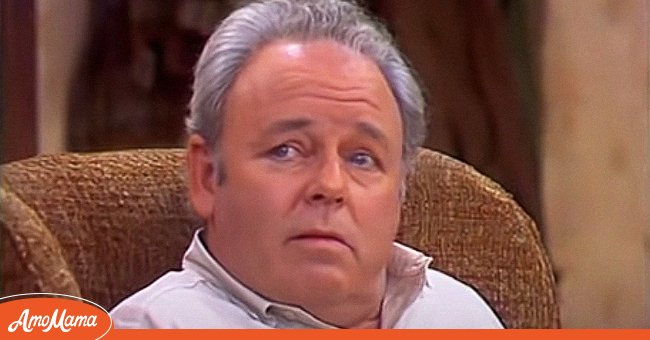
Photo of actor Carroll O'Connor during an episode of "All in the Family" | Photo: youtube.com/The Norman Lear Effect
O'Connor became a household name during this time and was one of the A-list actors until his life turned into grief following the death of his only son, Hugh, who had battled drug use all his life.
MEET O'CONNOR
Unlike his TV character, Bunker, O'Connor was introverted, calm, and polite; little wonder he was admired by several colleagues who praised him for being supportive.
While Bunker was a bigot, O'Connor had several African-American and Jewish friends, showing how distant he was from his famous TV character.
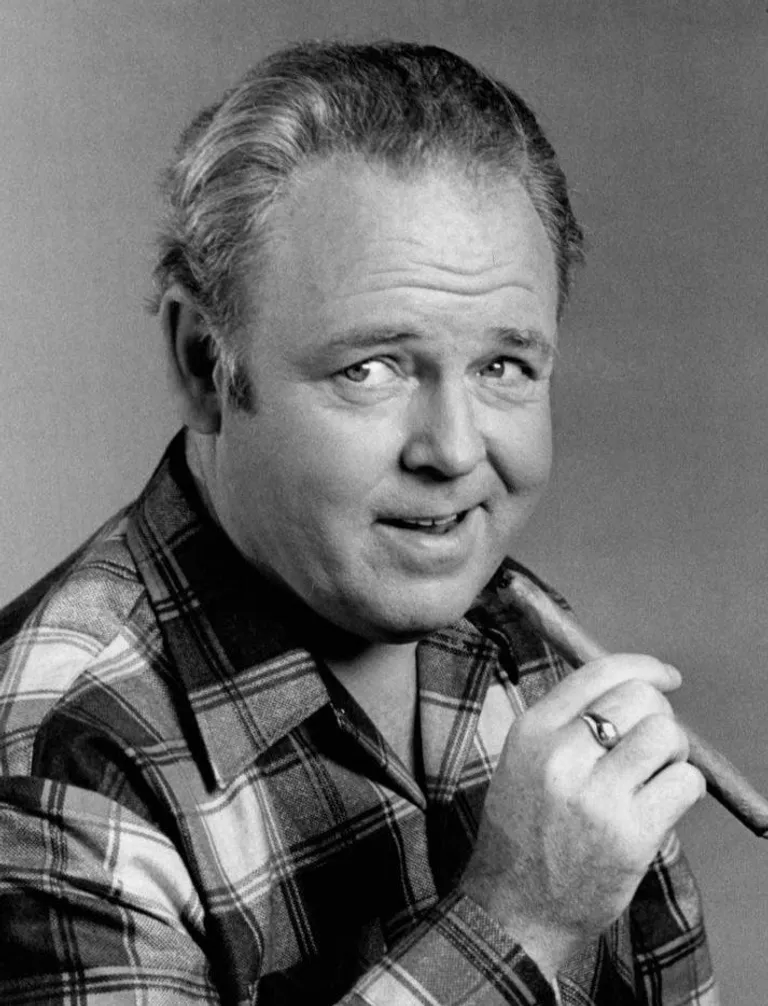
Carroll O'Connor as Archie Bunker from the TV program "All In the Family" | Photo: Getty Images
The famous Irish American actor was born on August 2, 1924, in Manhattan, New York City, to a lawyer, Edward Joseph O'Connor, and Elise Patricia O'Conner, who was a school teacher.
O'Connor grew up in a closely-knitted home, although he experienced tragedy early in his life. Two of his brothers were doctors, but one of them died in a motorcycle accident. It was his first taste of tragedy, one that left a void in his heart.
O'Connor was a mediocre student in high school and college, despite having a lawyer father and a school teacher mother. He became a commercial seaman during WWII, traversing the North Atlantic, Caribbean, and Mediterranean.
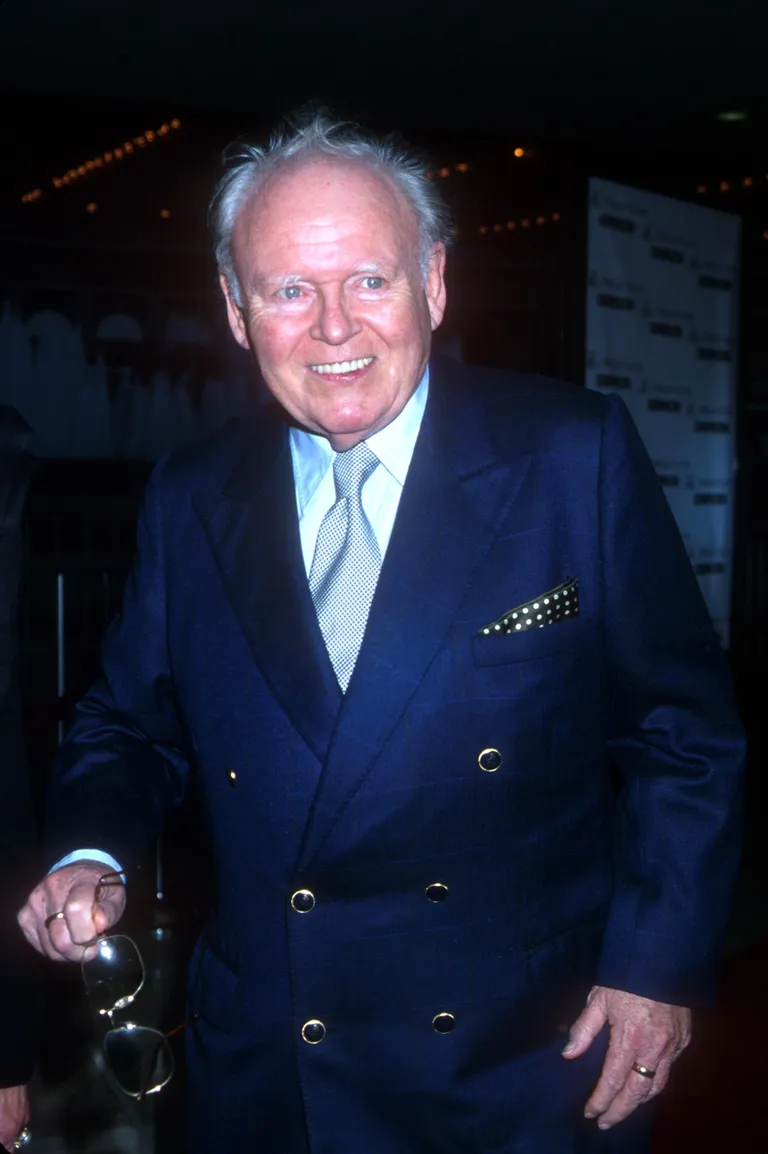
Carroll O'Connor in Century City, California on April 3, 2000. | Photo: Getty Images
In 1946, he returned to his mother's home in Queens, New York, after his father was imprisoned for fraud, and started working for an Irish newspaper.
After that, he returned to college, later enrolling in University College, Dublin, where he received a BA in Irish history and English literature in 1952.
During this time, O'Connor began performing professionally at the Gate Theater in Dublin, where he worked with Michael MacLiammoir and Hilton Edwards. He also performed in shows at the Edinburgh Festival and around Ireland.
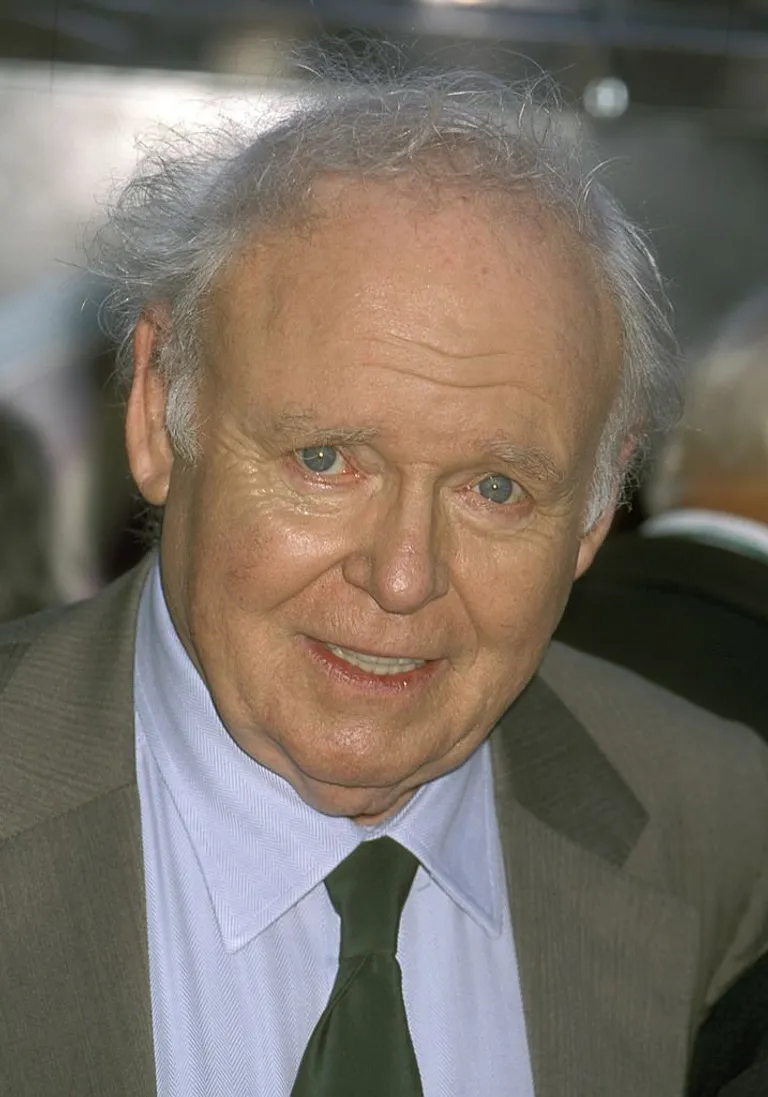
Carroll O'Connor is Honored with a Star on the Hollywood Walk of Fame at Hollywood Walk of Fame in Hollywood, California, on March 17, 2000. | Photo: Getty Images
When he returned to New York in 1954 and couldn't find work, he taught for four years before landing a role in Burgess Meredith's adaptation of James Joyce's novel, "Ulysses In Nighttown."
The role opened O'Connor to many other movies, including the ruthless Hollywood boss Stanley Hoff in an off-Broadway production of Clifford Odets's "The Big Knife."
For the rest of his life, O'Connor became an advocate against drug abuse and helped campaign for a California law.
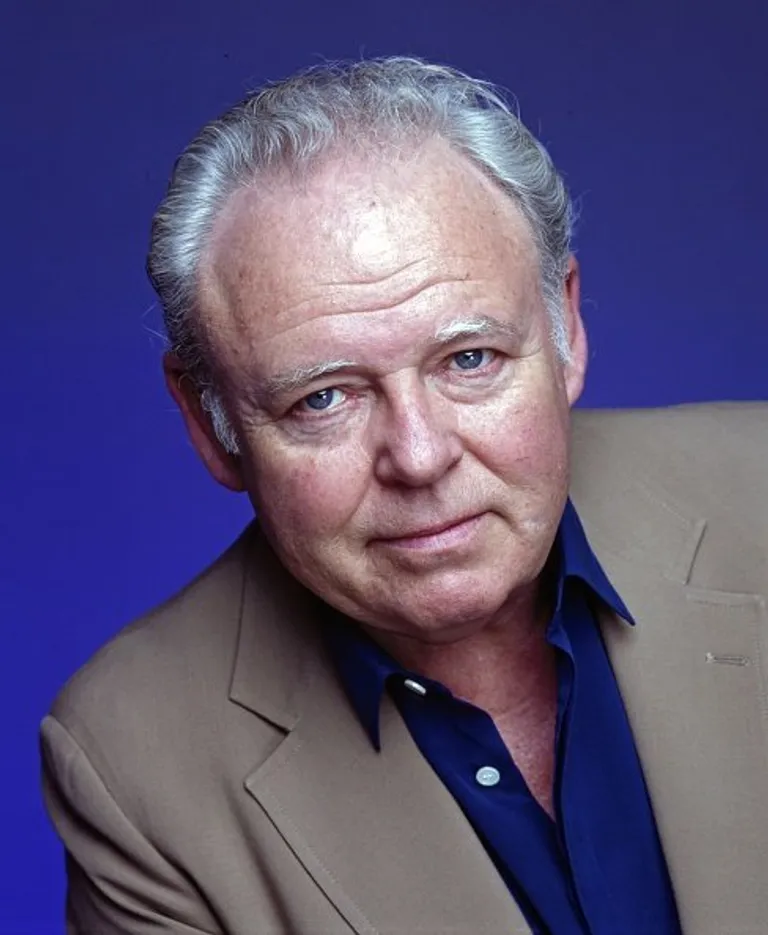
Studio portrait of Carrol O'Connor circa 1982. | Photo: Getty Images
O'Connor's reputation as a talented and remarkable supporting actor continued to grow as his career soared in the '60s. He was cast mostly as an army officer, appearing in movies like "In Harm's Way" and "Not With My Wife, You Don't!."
His career was given a big break by producer-writer Norman Lear when he was invited to star in "All In The Family," which became his biggest project as an actor.
After that, he appeared in other roles until he retreated from the movie scene after a family tragedy that broke his heart.
LOSING HUGH
Hugh was born in Rome, Italy, and was adopted by O'Connor and his longtime wife, Nancy, when he was only six days old. The actor named him after his late brother and adored him as his only son.
Hugh was diagnosed with cancer when he was 16 years old, but after two surgeries, he got his life back and followed in the steps of O'Connor to become an actor, but he began to nurse a deadly habit.
He became addicted to the prescription drugs and marijuana used to treat his pain and nausea. Over time, he became overly dependent on stronger drugs that defied all attempts to let him live a normal life.
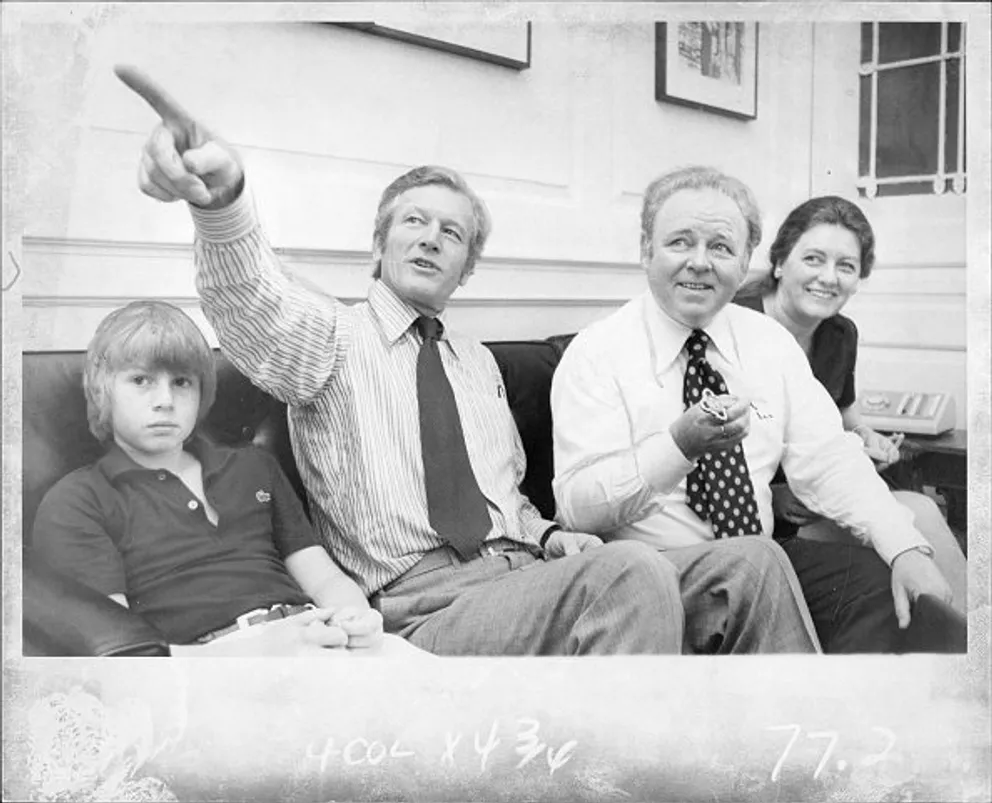
Carroll O'Connor, Nancy, and Hugh visited New York City Mayor John Lindsay at City Hall in 1973. | Photo: Getty Images
Hugh tried to get his life on track and married in 1992, becoming a father the following year, but his challenges were not better. A few days to his third anniversary, Hugh put a call through to his father in what would become their last conversation.
He believed there was no way out of his drug problems and was tired of attending several rehabilitation programs. Hugh informed his shocked father of his plans to end his life and end his troubles.
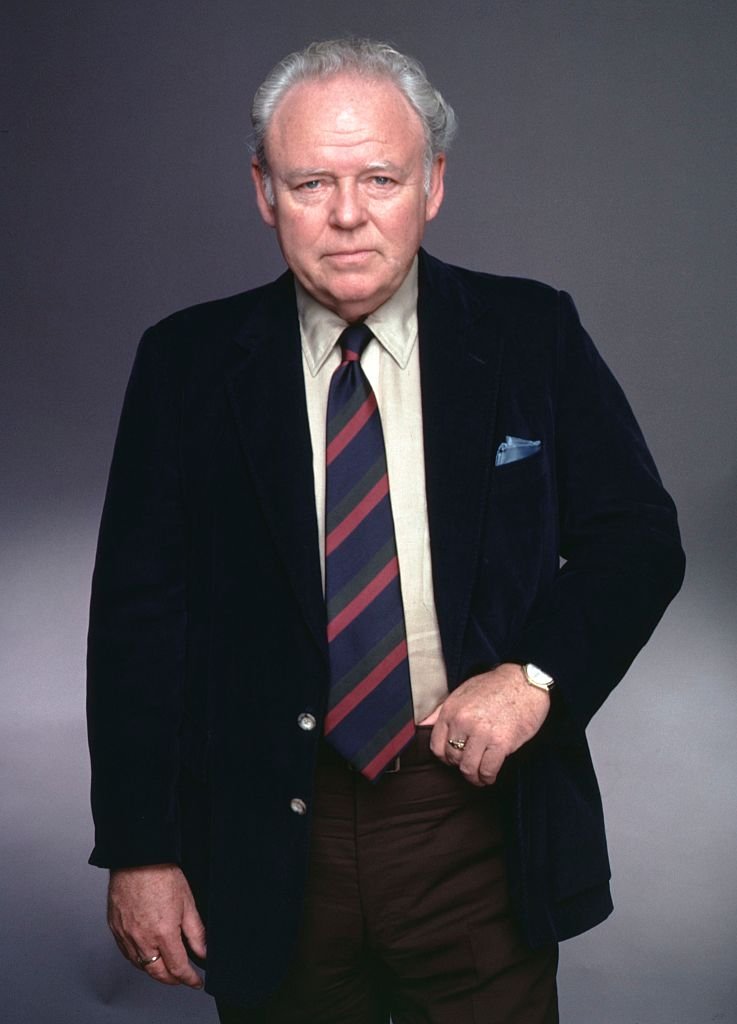
Portrait of actor Carroll O'Connor in July 1983. | Photo: Getty Images
O'Connor quickly called the police, but they found his lifeless body from a gunshot wound when authorities got there. A toxicology report showed he had cocaine in his blood before his death.
A few hours after Hugh's death, O'Connor publicly blasted Harry Perzigian, who had been supplying Hugh the drugs that consumed his life. O'Connor had tried to get Perzigian arrested as he believed he was the sponsor of Hugh's fatal lifestyle.
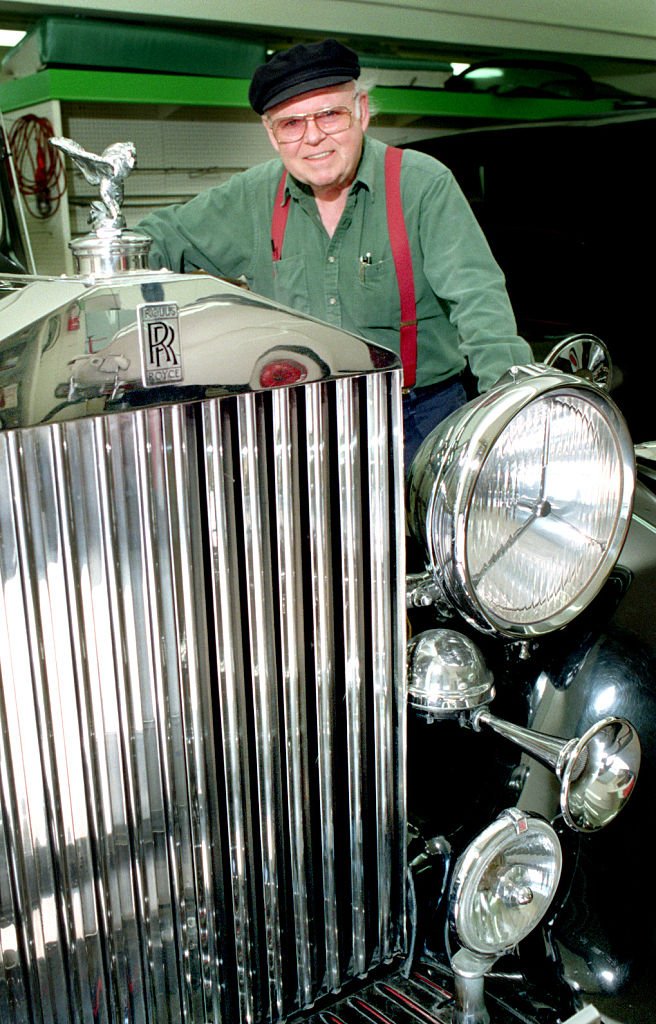
Actor Carroll O'Connor by his restored vintage Rolls Royce in his storage at Newbury Park on February 14, 1997. | Photo: Getty Images
Following Hugh's death and a raid of his home, Perzigian was sentenced to a year in prison and three years of probation, but this was not enough to heal a father's broken heart who had lost his only son.
During an interview on CNN's "Larry King Live," the late actor confessed his heartache and revealed he still missed his late son. He said he couldn't forget about his son's death, and not a day goes by without him in his thoughts.
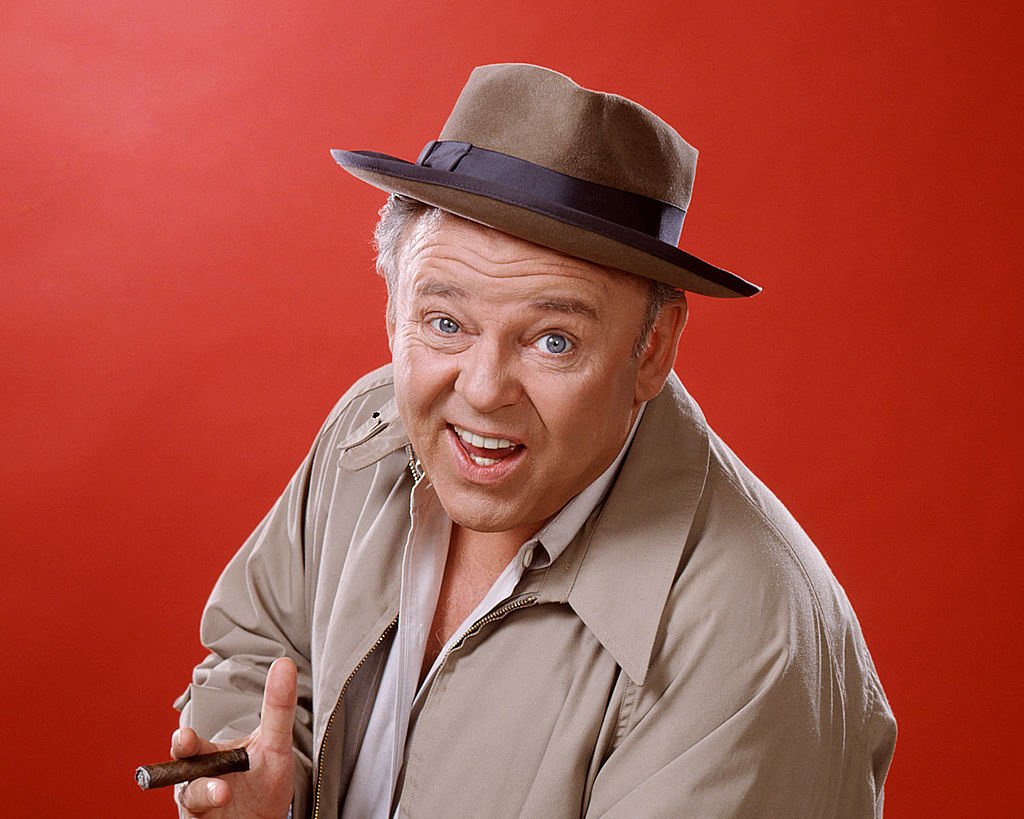
US actor Carroll O'Connor wearing a brown hat with a dark blue band and a beige jacket, and holding a cigar, in a studio portrait circa 1975. | Photo: Getty Images
AN ADVOCATE
For the rest of his life, O'Connor became an advocate against drug abuse and helped campaign for a California law. The law permitted family members of dead drug addicts to sue their drug dealers for monetary damages.
Many states passed similar laws, which became known as the "Hugh O'Connor Laws." The Emmy Award-winning actor died in 2001 from a heart attack due to complications from diabetes.
Several of his friends and co-stars mourned him by remembering how great an actor he was, but his greatest achievement would be putting a smile on the faces of millions that watched him play Archie Bunker.
The National Suicide Prevention Lifeline is 1-800-273-8255. Other international suicide helplines can be found at befrienders.org.
The information in this article is not intended or implied to be a substitute for professional medical advice, diagnosis or treatment. All content, including text, and images contained on news.AmoMama.com, or available through news.AmoMama.com is for general information purposes only. news.AmoMama.com does not take responsibility for any action taken as a result of reading this article. Before undertaking any course of treatment please consult with your healthcare provider.
news.AmoMama.com does not support or promote any kind of violence, self-harm, or abusive behavior. We raise awareness about these issues to help potential victims seek professional counseling and prevent anyone from getting hurt. news.AmoMama.com speaks out against the above mentioned and news.AmoMama.com advocates for a healthy discussion about the instances of violence, abuse, sexual misconduct, animal cruelty, abuse etc. that benefits the victims. We also encourage everyone to report any crime incident they witness as soon as possible.
